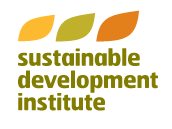A Future with Oil
On September 12th 2013 Silas Kpanan’Ayoung Siakor presented to the Liberian House of Representatives on the ‘National Oil Company (NOCAL) Act, 2013’ and the ‘Petroleum (Exploration and Production) Act, 2013’ two crucial pieces of legislation which could be passed without any public consultation.
Introduction
Liberia has a history of poorly managing its natural resource wealth. The current government, civil society and the population acknowledge this and agree that weak governance especially corruption remains a major challenge. Reforms of the natural resource sector have aimed to institutionalize transparency, accountability, and public participation in governance, but in spite of changes in laws and policies, the old practices of exclusion and marginalization persist.
The submission of the proposed ‘National Oil Company (NOCAL) Act, 2013’ and the ‘Petroleum (Exploration and Production) Act, 2013’ to the Legislature without any public consultation is another example.
On August 29, Israel Akinsanya, the NOCAL’s Director of Public Affairs said in a public forum: “there will be a nationwide consultation on the law. I promise you that. It will be taken to the people with their reps [sic] as part of the process before it is passed.” Honourable members of the House, this is the best way forward.
Why Public Consultation
Oil has a poor track record in Africa. Conflict and corruption linked to oil in Equatorial Guinea, Angola and Nigeria have been well documented. Nigeria is particularly notorious for the poor management of its oil wealth. Let’s not follow their examples.
“One of the problems we’ve had in our part of the world is oil discoveries and large deposits of natural resources have been more of a curse than a blessing” [1]
- Chris Neyor, former head of NOCAL
Liberia’s history and present realities bear testimony to Neyor’s assertion. The roots of the conflict can be traced back to decades of exclusion and marginalization of the majority of the population from mainstream political and economic activities in the country. Institutions of political governance were heavily centralized and concentrated in the hands of the elites and many people had limited access to economic assets. [2] Governance in Liberia has improved somewhat, but significant problems still remain. To exclude the public from the debate about a critical national asset such as oil is to ignore the hard lessons of our civil war; let’s not make the same mistakes as those before us.
Conclusion
The House of Representatives should not concur with the Liberian Senate on these proposed legislations until nationwide consultation has been conducted, and public concerns addressed in the final versions.
Commercial exploitation of oil will not automatically translate into prosperity for Liberia and its people. Weak governance and corruption could undermine the potential for wealth creation and the equitable distribution of the benefits of oil. Without good governance in the sector, the expected economic benefits are unlikely to be realized. To avoid this, let’s start with these laws. A robust legal framework that is formulated through an informed and inclusive public debate will ensure that the public understands and participates in the decision regarding the direction the country takes.
Under Article 7 of the Liberian constitution, the government has the responsibility to “manage the natural resources of Liberia in such manner as shall ensure the maximum feasible participation of Liberian citizens under conditions of equality so as to advance the general welfare of the Liberian people and economic development of Liberia.” [3]
Providing space and conditions for an informed public debate on these proposed legislations is in line with this obligation. This is your opportunity to leave a legacy; take advantage of it.
Notes
1. Valdmanis, Richard, Oil Hopes Run Deep in Troubled Liberia, Reuters, October 10, 2011 [Online at http://www.reuters.com/article/2011/10/10/us-liberia-oil-idUSTRE7994YO2…].
2. Poverty Reduction Strategy, Government of Liberia, 2008.
3. Government of Liberia, 1986 Constitution of Liberia, Article 7.
